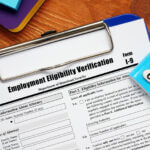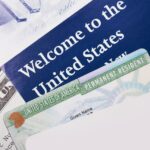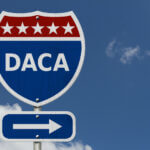Contents
Every year during a brief filing period beginning April 1, U.S. Citizenship and Immigration Services (USCIS) accepts H-1B visa petitions for the following fiscal year. Employers across the United States are already evaluating their H-1B visa needs for the April filing period and consulting immigration attorneys to handle the visa petitions and to provide sound legal insights and advice.
For U.S.-based employers seeking H-1B visas or seeking to learn more about H-1B visas, the first thing to know is that the number of available H-1B visas is capped and that the competition for those particular visas is aggressive. Since 2005, the H-1B cap has been set at 65,000, although an additional 20,000 H-1B visas are also made available for employees holding advanced degrees earned at U.S. institutions.
The qualifications required to obtain H-1B visas are quite strict, and the demand exceeds the supply by about 3-to-1. In 2013, 120,000 H-1B applications were received by April 2, so a lottery system has now been implemented to distribute H-1B visas. The lottery is a random selection process of the H-1B petitions received to determine which will be assigned an H-1B cap number and adjudicated.
Last year, USCIS received approximately 233,000 H-1B petitions in the first week the window was open. Employers hiring foreign national employees who need H-1B sponsorship should contact an immigration attorney today in order to ensure their sponsorship petitions are received at USCIS on April 1, 2016. The deadline is approaching swiftly, so you and your immigration attorney need to begin preparing your H-1B petition package immediately
DIFFICULT TO OBTAIN H-1B VUSA
H-1B visas are frankly difficult – but not impossible – to obtain. If you are an employer in the United States, an experienced immigration attorney can help your company meet all of the required deadlines, provide accurate and complete information, and avoid the mistakes and misunderstandings that keep many employers from acquiring the visas they need. A good immigration lawyer, in other words, can put you in the best possible position to obtain H-1B visas and can probably help you if necessary with other appropriate visa options. Employers who need H-1B visas can arrange right now to speak with an experienced Las Vegas immigration attorney.
Many businesses based in the United States use the H-1B visa program to hire international workers in specialty occupations that require the practical or theoretical application of highly specialized knowledge. The Immigration and Nationality Act of 1965 defines a “specialty occupation” as employment requiring specialized knowledge in a particular field and requiring a bachelor’s degree or its equivalent.
International workers fill critical hiring needs in the science, technology, engineering, and math fields. Those workers include but are not limited to computer programmers, mathematicians, engineers, and scientists in fields including chemistry, robotics, and biotechnology. The current demand for workers in those industries actually exceeds the supply, so it’s important for employers to be knowledgeable and fully-prepared when applying for H-1B visas and to have the assistance of an experienced immigration attorney.
H-1B work authorization is restricted to employment provided by a sponsoring employer. If all other conditions are met, H-1B work authorization is good for three years and may be extended to six years. However, H-1B visa regulations do not require the visa holder to remain with the sponsoring employer for a specific length of time, provided that a new employer sponsors the employee for another H-1B visa.
WHO CAN QUALIFY FOR H-1B Visa?
It’s also important to know – despite what you may have read or heard – that H-1B visas are not issued exclusively to companies like Microsoft, Google, and Facebook. Employers in all regions of the country petition for and acquire H-1B visas. A number of companies in a number of major cities request 250 or more H-1B visas every year. H-1B visa holders contribute to their local communities and to the national economy, and they help employers create even more new jobs and new opportunities for economic growth.
Employees approved and selected for H-1B visas this April will receive those visas in October at the start of FY2017. Employers now should identify those candidates who need sponsorship. Some of those candidates may already be employed and working in the U.S. with temporary work authorizations. Employees and candidates who may need H–1B sponsorship may include:
- Candidates currently in H-1B status with an H-1B cap-exempt employer (a college or university or an affiliated non-profit, a nonprofit research organization, or a governmental research organization) who are seeking work with a cap-subject employer
- Students and recent graduates currently working in Optional Practical Training (OPT) or Curriculum Practical Training (CPT) who will need H-1B sponsorship when their OPT or CPT expires
- Candidates currently holding another nonimmigrant work visa (such as a TN, H-3, H-2, O-1, or J–1 visa) who need to change their status to H–1B
RESPONSIBILITIES OF SPONSORING EMPLOYERS
When the H-1B employment period has concluded, the employer must contact USCIS to have the H-1B petition revoked. As long as the H-1B petition remains in effect, the employer must pay the worker’s wages. If the employer terminates the H-1B worker, the employer must offer to pay for return transportation to the worker’s last place of residence abroad. The return transportation requirement does not apply if the H-1B worker resigns from the position or leaves voluntarily. Employers, however, are not responsible for return transportation costs for the H-1B worker’s dependent family members.
Employers must also avoid any allegations of discrimination based on citizenship status or national origin, so the questions they ask of candidates must be worded carefully. An experienced immigration attorney can help employers draft appropriate interview questions and avoid any charges of discrimination. Employers in the U.S. face potential legal liability if they favor American citizens over authorized foreign guest workers in layoffs, pay decisions, and other such actions. The Immigration and Nationality Act bars discrimination in employment based on citizenship or immigration status by employers with more than four employees, and Title VII of the Civil Rights Act of 1964 also prohibits employment discrimination based on national origin by employers with fifteen or more employees.
REASONS FOR H1B VISA DENIALS
An H-1B visa may be denied if the sponsoring employer does not appear to be a real, established, operating U.S. company with the capacity to hire and pay an H-1B worker. Employers petitioning for H-1B visas must provide documentation such as a tax identification number, tax returns, or financial statements. Insufficient documentation will lead to the automatic rejection of an H-1B visa application.
An H-1B visa petition may also be rejected if the job that iss offered does not qualify as a “specialty occupation.” If the H-1B petition states that the employee will work offsite at a client location, this may raise questions about whether the employee will genuinely be working for the sponsoring employer.
The employer may be asked for evidence such as a contract agreement and a clear statement that only that employer will have employer control over the employee who will be working at the client location. Failure to include any of this evidence in the initial visa petition may result in a denial. A good immigration attorney will know precisely what is required.
DEPENDENT FAMILY MEMBERS
Dependent family members (spouses and children under age 21) are eligible for H-4 visas to accompany an H-1B worker to the United States. In 2015, the Department of Homeland Security extended eligibility for work authorization to certain H-4 dependent spouses of those H-1B visa holders who are seeking employment-based lawful permanent resident (LPR) status.
DHS will now allow these H-4 visa holders to accept employment in the United States. Qualifying H-4 spouses must file Form I-765 (Application for Employment Authorization) with supporting documentation and the required fee in order to obtain a Form I-766, the Employment Authorization Document (EAD). When USCIS approves the Form I-765 and the H-4 dependent spouse receives an EAD, he or she may begin working in the United States.
U.S.-based employers who hire international workers should know from the beginning that they must adhere to a number of immigration laws and immigration-related employment regulations. Federal agencies may inspect your employment records and your overall operations to ensure your compliance. Compliance investigations are routinely conducted by several U.S. government agencies and departments: the U.S. Department of Labor (DOL); U.S. Citizenship and Immigration Services (USCIS); U.S. Immigration and Customs Enforcement (ICE); and the U.S. State Department.
THE HELP EMPLOYERS NEED
A good immigration attorney can verify that your company’s policies are in compliance or can show you what changes need to be made. If you are cited for non-compliance by any enforcement agency, have an experienced immigration lawyer suggest the appropriate remedial legal action and the changes needed to prevent a recurrence.
If you are investigated for possible violations of immigration or employment laws, or if you are an employer who is currently appealing a finding or a ruling from a government agency, you very much need to be represented by an experienced immigration attorney.
Immigration law in the United States is baffling, confusing, and exceedingly complicated. If you are a U.S.-based employer hiring international employees to work for your business, the laws you deal with will be numerous and complex. You can obtain help right away from an experienced immigration Las Vegas attorney if you have any immigration-related questions or concerns or if you are dealing with any specific, legal immigration issue.
Employers, hiring managers, and international workers are all urged to contact an experienced immigration attorney by phone or by e-mail to have your visa questions answered or to begin the H-1B visa petition process. The April 1 deadline is rapidly approaching, so employers should make the call and get started as quickly as possible.






